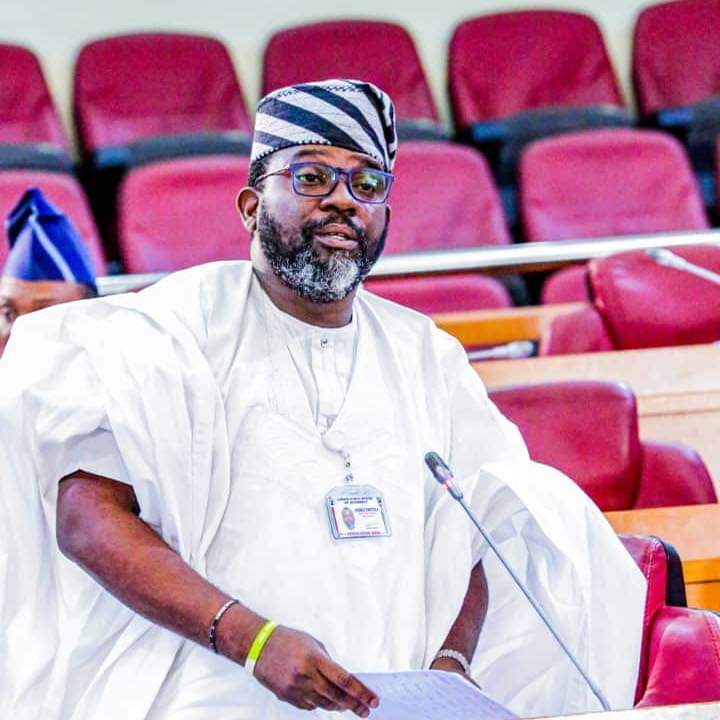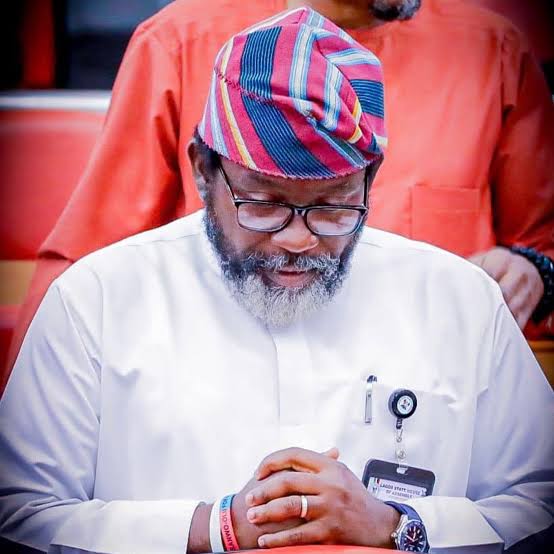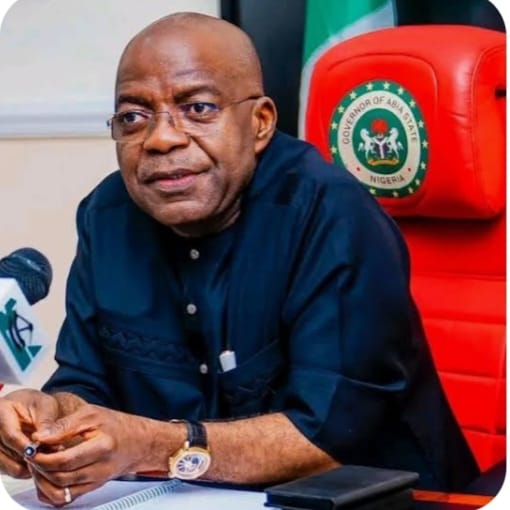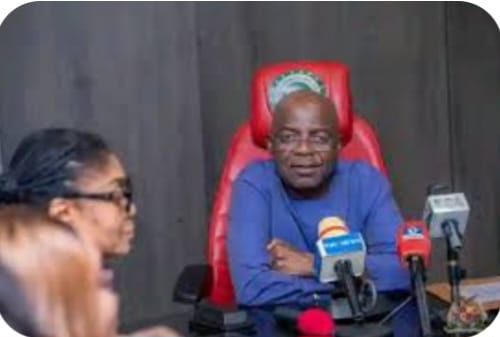Politics
Governor Abiodun Unveils Intimidating Achievements In Forestry Sector
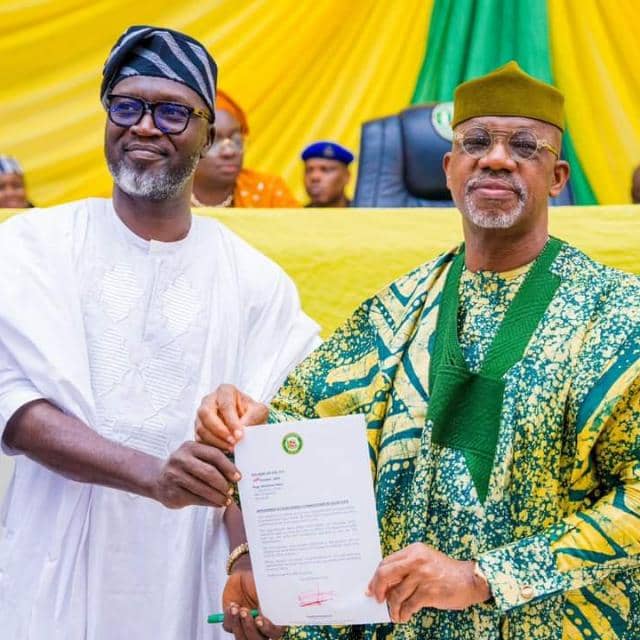
Governor Abiodun Unveils Intimidating Achievements In Forestry Sector
In his continued efforts to demonstrate a strong commitment to sustainable forest management and conservation in Ogun State, the Governor, Prince Dapo Abiodun has recorded numerous achievements through the State’s Ministry of Forestry.
Governor Abiodun through sterling leadership via the Ministry of Forestry has maintained nine forest reserves, executed tree planting agreements and expanded forest cover through investor-friendly policies.
All these moves aligned with his ISEYA mantra as well as laying down of strong template that will stand test of times.
The Governor’s foot soldier and Commissioner of the Ministry, Engr. Taiwo Oludotun, FNSE ensures that the ball is not dropped.
The Forest Commissioner, Engr. Oludotun, FNSE while rolling out some of the Ministry accomplishments as of October 2024, listed to include the establishment of indigenous plantations, forest expansion, annual planting of thousands of trees, concessioning of land for pulp wood production, procurement of essential operational tools, security and protection of forest resources, collaborations with corporate bodies and farming groups, and significant revenue generation.
Below are some of the key accomplishments as of October 2024
“Maintenance of the State’s nine forest reserves sustainably to position the State in good standing in the comity of timber producing States in Nigeria”
ii. Execution of Tree Planting Agreements:
• The Ministry executed Agreement with Nigerian Breweries Pic for the establishment of 500ha of indigenous plantation over a period of 10 years in Olokemeji Forest Reserve. The planting which is being carried out as part of the Corporate Social Responsibility programme of the Company is in recognition of the efforts of the Ministry at developing the State’s forestry sector. As at present, about 150ha out of the proposed 500ha has been planted up.
The Ministry also executed a partnership Agreement with International Institute for Tropical Agriculture (IITA), Ibadan for the establishment of 300ha of indigenous tree species to increase the raw material stock of the Forest Estate and to sequester atmospheric carbon. This partnership came on the heels of the success recorded with the Agreement signed with Nigeria Breweries. The partnership is expected to last for a period of 5years in Olokemeji Forest Reserve after which the plantation will be handed over to the State Government for maintenance and ownership.
iii. Forest Expansion: As a result of the investor friendly policies of the Ministry, over 2,000 hectares of forest land with approximately 3,000,000 trees established in seven Forest Reserves through direct planting and collaborations with investors like Nigeria Breweries Pic and International Institute of Tropical Agriculture (IITA).
Annual Planting:
2021: 521,837 trees on 469.7 hectares
ο 2022: 360,409 trees on 324,4 hectares
ο 2023: 1,565,399 trees on 1,409 hectares
2024:510,838 trees on 459,8 hectares,
iv Planted 4,080 trees at the Ogun Agro-Cargo Airport at Iperu.
V. State’s inclusion in the United Nation-REDD program: The State was included in the list of States to partake in the UNREDD+ program being coordinated by the Federal Government, A REDD+ Secretariat has been created and other activities are currently going on to ensure that the State begins to access fund from the Carbon Credit platform. The implementation of the project is in phases which began with the “Readiness phase”. This phase has been completed with the State’s enlistment while the second phase “Implementation Phase” is almost completed. The final phase will be the full “National Implementation” and this is expected to commence immediately the second phase has been achieved.
vi
Concession: Concessioning of 4,000ha to Dahua Forest Resources Development
Company Limited in Eggua Forest Reserve for pulp wood production. The concession is set to achieve the establishment of Eucalyptus trees, 10,000,000 trees would be planted through the concession. This is to provide raw materials for paper producing industries particularly Dahua Papers.
Procurement: The Ministry procured the following during the period: 5nos of new motorcycles and also refurbished 2 Tractors, 4 patrol vehicles as well as 25 motorcycles to ease monitoring.
• Essential operational tools for the Forestry Extension Unit to improve the efficiency and effectiveness of the Unit in attending to its assignments
across the State. Different units of horticultural tools to establish fruit orchard and horticultural seedlings for revenue generation.
Security and Protection: The Ministry intensified efforts towards the protection of forest resources planted with Government funds. To this end, the Ministry embarked on enhanced patrol and protection activities. This effort led to the apprehension of over 30 illegal perpetrators, recovery of illegally logged trees and timber, and generation of over N25 million from fines.
ix Collaborations: In the last one year, the Ministry partnered with 11 corporate bodies and 17 farming groups to carry out Agro-forestry. The partnership led to the establishment of over 120 hectares Agroforestry plantations in Ilaro Forest Reserve,
Farmer Enumeration: To ensure the protection of lives and properties within the Reserves, the Ministry commenced plans to rid the Reserves of miscreants endangering lives of residents of the Reserves. The Ministry commenced the enumeration of farmers in Omo Forest Reserve, Over 6,000 farmers have so far been enumerated. This initiative is to curb miscreants’ influx into the Reserve.
xi Encroachment Reduction: Drastic reduction in forest encroachment through policy reviews and enactments,
xii. Wildlife Sanctuary: To ensure the safety of the different wildlife in the State particularly Elephants in the Forest Reserves, the Ministry requested and secured His Excellency’s approval to acquire and gazette 4,000ha of land in Itasin in Ijebu East LG. The acquired land currently houses a herd of Elephants, The Ministry has Commenced the process of takeover of the approved 4,000-hectare Wildlife Sanctuary at Itasin Community.
Bamboo Plantation: The Ministry established 5 hectares of Bamboo plantation at Ilaro Forest Reserve. This was done to reclaim some degraded parts of the Reserve.
Security Operations: Following the registration and identification of genuine farmers in Omo Forest Reserve, the Ministry carried out a successful Task force operation to rid Omo Forest Reserve of criminals.
Infrastructure Development: To ease log evacuation and for administrative convenience, the Ministry created Laagan Range. The range was carved out of Area J4 in Omo Forest Reserve. In addition to creating the range, a befitting building which serves as the office was constructed and furnished. Also, solar power supply system was deployed to provide power at the range.
XVI Reclamation: The Ministry reclaimed over 5,000 hectares encroached land within the State’s Forest Reserves. Part of the reclaimed land were allocated to investors for establishing Agro-forestry plantations.
xvii.
Global Environment Facility (GEF) Project Approval: The Ministry secured approval for the Conservation of Biodiversity and Sustainable use of low-land forest mosaic landscape in Ogun, Edo, Delta, and Ondo States. This project will guarantee ecosystem restoration and sustainability, climate mitigation and adaptation, biodiversity conservation, improved livelihood and food security.
xviii. Internally Generated Revenue: The Ministry has achieved 95% of her revenue target for year 2024 as at October 2024. This feat was made possible through the leadership style of Engr. Taiwo Oludotun FNSE, the Hon. Commissioner for Forestry.
Politics
Why Ifako-Ijaiye’s Voice Is Louder At The Lagos Assembly: The Jah Factor
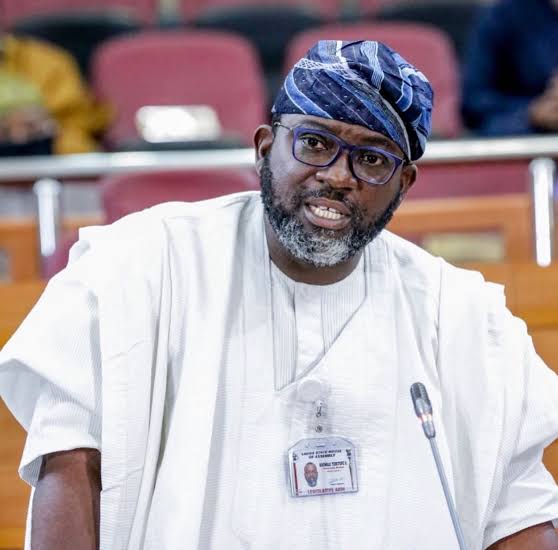
Why Ifako-Ijaiye’s Voice Is Louder At The Lagos Assembly: The Jah Factor
By Ibukun Simon
In legislative politics, not all representatives are created equal. Some merely occupy seats; others shape conversations, influence outcomes, and leave visible footprints in the lives of their people. Since 2019, Ifako-Ijaiye Constituency I has belonged firmly to the latter category, thanks to the emergence of Hon. Adewale Temitope Adedeji, fondly known as JAH, as its representative in the Lagos State House of Assembly.
As a journalist who has covered proceedings of the Lagos Assembly consistently since 2015, I have witnessed first-hand how representation can either fade into the normal routine or rise into relevance. The entry of Hon. Adedeji into the Assembly marked a clear turning point—not only for Ifako-Ijaiye, but for the quality of debate, advocacy, and people-focused legislation within the House.
On the floor of the Assembly, Hon. Adedeji stands out as one of the lawmakers journalists naturally gravitate towards. His interventions during plenary sessions are deliberate, articulate, and deeply rooted in public interest and knowledge. In the 40-member House, he is widely regarded as one of the top five lawmakers whose contributions command attention, not because of theatrics, but due to his clarity of thought, persuasive delivery, and uncommon mastery of issues. When JAH speaks, the chamber listens—and the press takes notes.
This strength of presence is crucial in a legislative environment where influence matters. In parliamentary practice, experience translates to authority. The Lagos State House of Assembly, like many legislatures, places significant weight on ranking members—lawmakers whose sustained service enhances their ability to push motions, influence committee outcomes, and attract development to their constituencies. Returning Hon. Adedeji to the House in 2027 would therefore mean strengthening Ifako-Ijaiye’s bargaining power and ensuring its concerns are not just heard, but prioritized.
Beyond the chambers, the impact of Hon. Adedeji’s representation is visible across the constituency. In terms of infrastructural development, several road construction and rehabilitation projects have been attracted to Ifako-Ijaiye under his watch, improving accessibility, boosting local businesses, and easing daily movement for residents. These are practical dividends of democracy that speak louder than campaign slogans.
Equally significant is his focus on human development and social inclusion. Since assuming office in 2019, Hon. Adedeji has facilitated job opportunities, empowered the less privileged, and consistently supported students through the distribution of JAMB and GCE forms, helping to remove financial barriers to education. These interventions reflect the impact of a representative who understands that development must touch both infrastructure and people.
What further distinguishes Hon. Adedeji is his constant engagement with constituents. Through consultations, town-hall interactions, and accessibility, he has maintained a relationship that goes beyond election cycles. This closeness has fostered trust and ensured that governance remains responsive to grassroots realities.
As Lagos continues to grow and legislative responsibilities become more demanding, constituencies like Ifako-Ijaiye cannot afford experimental representation. They require lawmakers who understand the system, command respect within it, and can translate legislative influence into real benefits for the people.
From the Assembly floor to the streets of Ifako-Ijaiye, the record since 2019 is clear: effective representation works—and Hon. Adewale Temitope Adedeji has delivered it.
Ibukun writes from Ifako-Ijaiye.
Politics
Lack of Understanding or Legitimate Concern? Otti’s Defence of Tinubu’s Tax Reform Sparks National Debate
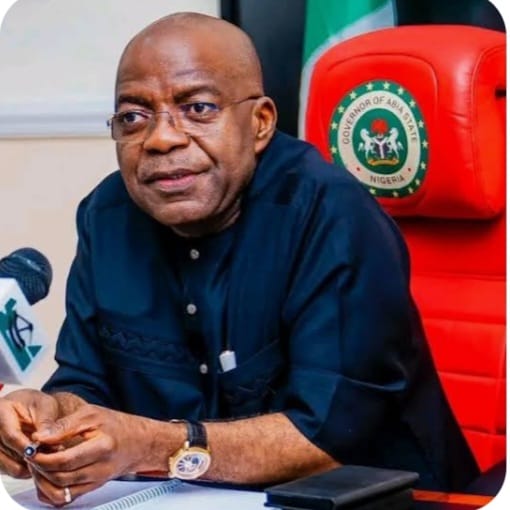
Lack of Understanding or Legitimate Concern? Otti’s Defence of Tinubu’s Tax Reform Sparks National Debate
By George Omagbemi Sylvester | SaharaWeeklyNG
“Abia Governor Alex Otti argues critics misunderstand the overhaul of Nigeria’s tax laws, but the controversy reveals deeper anxieties about governance, transparency and economic strain.”
When Abia State Governor Alex Otti publicly defended President Bola Ahmed Tinubu’s newly enacted tax reform laws on February 13, 2026, he did more than just push back at critics, he threw the spotlight back on a fulcrum issue dividing Nigeria’s political and economic classes. Otti’s assertion that Nigerians attacking the tax policy “lack understanding” crystallises a broader fracture in public discourse over fiscal policy, governance and the future of the Nigerian economy.
The comments from Governor Otti came amid an intensifying national conversation over sweeping tax reforms signed into law in June 2025, designed to modernise Nigeria’s tax architecture and expand revenue mobilisation. These reforms (long in the making and championed by a Presidential Fiscal Policy and Tax Reforms Committee chaired by Prof. Taiwo Oyedele) mark the most far‑reaching overhaul of federal tax laws in decades. They include restructuring the Federal Inland Revenue Service into the National Revenue Service (NRS), establishing a Tax Appeal Tribunal and Ombudsman Office, and unifying revenue collection frameworks to improve transparency and efficiency.
Governor Otti’s praise for the new legislation resonated with elements of his own fiscal thinking. Drawing on economic positions he articulated nearly a decade ago, he argued that key principles now entrenched in the law reflect sound fiscal reasoning and long‑standing proposals to strengthen Nigeria’s economic foundations. “Almost 10 years ago, I wrote about the fiscal side of things,” Otti said. “When I read the new tax reform law, I saw many of those arguments reflected in it. I thank Prof. Oyedele. When people attack him, they don’t understand.”
Yet, while Otti’s intervention was meant to de‑escalate public criticism, it instead exposed how complex and emotionally charged the issue of taxation has become in Nigeria. Critics, both inside and outside government, argue that the reforms have not been adequately explained to citizens and that many fear the measures will aggravate hardship amid already high costs of living. One prominent voice of dissent, fiscal policy analyst Aborisade, warned that without transparency and clear communication on how tax revenues will be collected and returned to the people, “these reforms risk becoming deeply unpopular.” Critics also highlight that any tax increase implemented without demonstrable improvements in public services could fuel resentment and mistrust in governance.
That mistrust is not abstract. For years, Nigeria has struggled with weak tax compliance, low revenue‑to‑GDP ratios compared with other emerging economies, and public scepticism over how government revenues are utilised. Many Nigerians remember episodes where policy changes were not accompanied by visible improvements in infrastructure, healthcare or power delivery, reinforcing the belief among skeptics that new taxes equate to greater burden with little reward.
For supporters like Otti and others in government policy circles, the reforms represent a long‑overdue attempt to widen the tax net and reduce Nigeria’s chronic dependence on volatile oil revenues. Advocates argue that a modernised tax system can enhance domestic revenue mobilisation, reduce fiscal deficits, and create a more resilient economy. They point out that reforms provide exemptions and reliefs for low‑income earners and small businesses and are aimed at building a fairer, more transparent system for all stakeholders.
Still, bridging the gap between these competing narratives is challenging. Opposition voices contend that even well‑designed tax policy may fail if the state lacks the capacity to implement it equitably or if the public’s confidence in leadership remains weak. “Without accountability and clear benefits for their contributions, any tax reform risks becoming deeply unpopular,” Aborisade emphasised, warning that heavy taxation without trust can fracture the social contract.
The debate over Tinubu’s tax reform illustrates a deeper truth about contemporary Nigeria: that economic policy no longer exists in a vacuum but is deeply intertwined with public sentiment, political legitimacy, and social cohesion. As one respected economist put it, “Taxation is not just a fiscal tool, it is a trust‑building exercise between the state and its citizens.” When that trust is fragile, even technically sound reforms can be seen as punitive rather than constructive.
Analysts suggest that meaningful public engagement (including sustained information campaigns, transparent revenue utilisation reporting and constructive dialogue with civil society) is essential to soothe anxieties and build confidence in the new system. Without this, what began as an effort to stabilise public finances could widen political and social divides.
In defending the tax reforms, Governor Otti has framed the challenge as one of comprehension rather than critique. But the controversy unfolding across Nigeria is not simply about misunderstanding; it underscores a profound gap between policy design and public perception. For a reform of this magnitude to succeed, Nigerians must be assured not only of its economic merits, but also of its fairness, transparency and tangible impact on everyday lives.
As the implementation phase continues through 2026 and beyond, the Tinubu administration, state governments and economic stakeholders face the critical task of translating legislative change into broader public trust – a task as difficult as any technical reform the tax laws themselves seek to achieve.
Politics
Cubana Chief Priest Backs Tinubu Ahead of 2027, Signalling Shift in Celebrity Political Alignments

Cubana Chief Priest Backs Tinubu Ahead of 2027, Signalling Shift in Celebrity Political Alignments
By George Omagbemi Sylvester | SaharaWeeklyNG
“Socialite’s public declaration underscores growing intersection of business, entertainment and electoral politics as Nigeria inches toward another high-stakes presidential race.”
A prominent Nigerian socialite and nightlife entrepreneur, Pascal Okechukwu (popularly known as Cubana Chief Priest) has publicly declared his support for President Bola Ahmed Tinubu ahead of the 2027 presidential election, in a move that has stirred debate across Nigeria’s political and social media landscapes.
The declaration emerged in early February 2026 through a series of Instagram posts and public exchanges with critics and followers. In those posts, the celebrity businessman stated unequivocally that he would align himself with Tinubu’s political camp and work against the anticipated presidential bid of former Anambra State governor and Labour Party figure, Peter Obi.
Cubana Chief Priest, who commands a large following across Nigeria’s entertainment and hospitality sectors, framed his decision as both a political and economic calculation. In one exchange, he argued that as an employer and businessman, he preferred collaboration with the incumbent administration rather than opposition politics.
He also publicly declared that he and his family had chosen to “stay with the moving train” of Tinubu’s “Renewed Hope” agenda, signalling clear political alignment with the ruling All Progressives Congress (APC).
The shift is politically significant because the socialite had previously been associated with Peter Obi during the 2023 presidential election cycle. In his own words, he acknowledged that he worked for Obi during that campaign, even while holding an advisory role to an APC-aligned state government.
His new stance therefore represents a notable reversal, particularly within the South-East business community, where Obi enjoyed strong support during the last election.
The controversy surrounding the declaration intensified after an online clash between Cubana Chief Priest and social commentator Isaac Fayose, the brother of former Ekiti State governor Ayodele Fayose. The dispute centred on the socialite’s decision to align with Tinubu’s political movement, with Fayose accusing him of opportunism. In response, Cubana Chief Priest defended his position, arguing that political alignment was a practical choice for a businessman responsible for large-scale employment.
He also linked his support for the APC government to broader political objectives, including the potential release of detained pro-Biafra leader Nnamdi Kanu, stating that such outcomes were more achievable from within the ruling political structure than from opposition ranks.
Beyond social media statements, reports indicate that Cubana Chief Priest has expressed interest in running for a seat in the House of Representatives in 2027 under the APC platform, suggesting that his endorsement of Tinubu is part of a deeper political ambition rather than a mere celebrity opinion.
News reports also describe his announcement of political plans and explicit backing of Tinubu as part of the emerging alignment of business figures with the president’s second-term project.
The development coincides with political moves by his associate, the businessman Obinna Iyiegbu, popularly known as Obi Cubana, who has also been linked to pro-Tinubu political structures ahead of 2027.
This clustering of influential entrepreneurs around the ruling party has prompted renewed discussion about the growing role of celebrity endorsements and business interests in Nigeria’s electoral politics.
Political analysts say such endorsements, while often symbolic, can influence public perception, especially among young voters who are heavily engaged with celebrity culture. As political scientist Larry Diamond once observed, “In transitional democracies, informal power networks (business elites, media figures, and celebrities) can shape political outcomes as much as formal party structures.”
Similarly, Nigerian scholar Professor Jibrin Ibrahim has argued that “the fusion of business capital and political capital is one of the defining features of contemporary Nigerian politics.”
However, critics warn that celebrity political alignments rarely translate into structured policy debates or ideological clarity. Economist Pat Utomi has repeatedly cautioned that “Nigeria’s democracy suffers when politics becomes an extension of celebrity influence rather than a contest of ideas and development strategies.”
For now, Cubana Chief Priest’s declaration remains a personal political endorsement rather than an official party appointment at the national level. Yet its timing (more than a year before the formal campaign cycle for 2027) illustrates how early positioning has already begun among Nigeria’s political and business elites.
Key figures involved:
Pascal Okechukwu (Cubana Chief Priest): Socialite and businessman who declared support for Tinubu.
President Bola Ahmed Tinubu: Incumbent Nigerian president expected to seek re-election in 2027.
Peter Obi: Former Anambra governor and likely opposition contender.
Isaac Fayose: Social commentator who criticised the endorsement.
Obinna Iyiegbu (Obi Cubana): Business associate linked to pro-Tinubu political structures.
As Nigeria moves gradually toward the 2027 electoral cycle, the intersection of celebrity influence, business interests and party politics is likely to intensify, raising fresh questions about the nature of democratic mobilisation in Africa’s most populous nation.
-

 celebrity radar - gossips6 months ago
celebrity radar - gossips6 months agoWhy Babangida’s Hilltop Home Became Nigeria’s Political “Mecca”
-

 society6 months ago
society6 months agoPower is a Loan, Not a Possession: The Sacred Duty of Planting People
-

 news6 months ago
news6 months agoTHE APPOINTMENT OF WASIU AYINDE BY THE FEDERAL GOVERNMENT AS AN AMBASSADOR SOUNDS EMBARRASSING
-

 Business6 months ago
Business6 months agoBatsumi Travel CEO Lisa Sebogodi Wins Prestigious Africa Travel 100 Women Award








